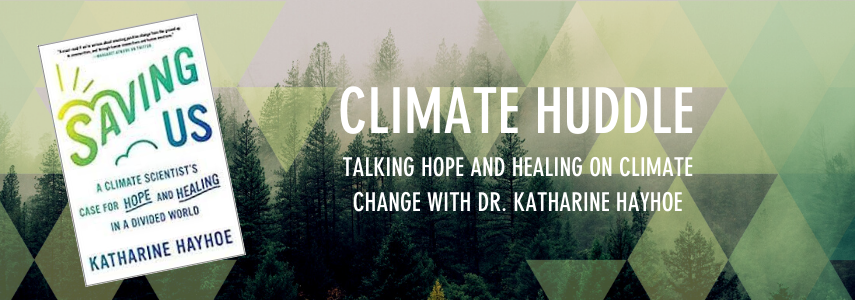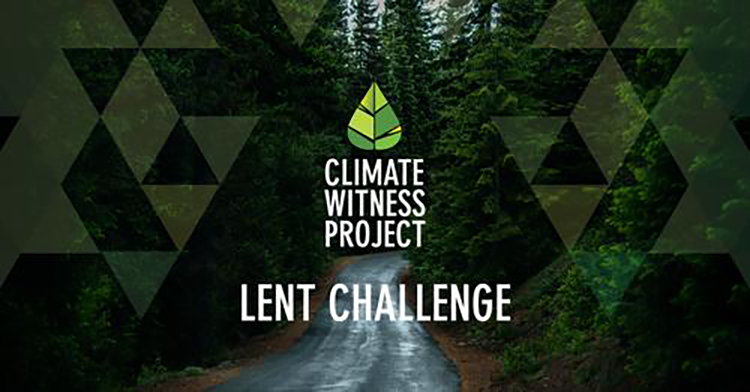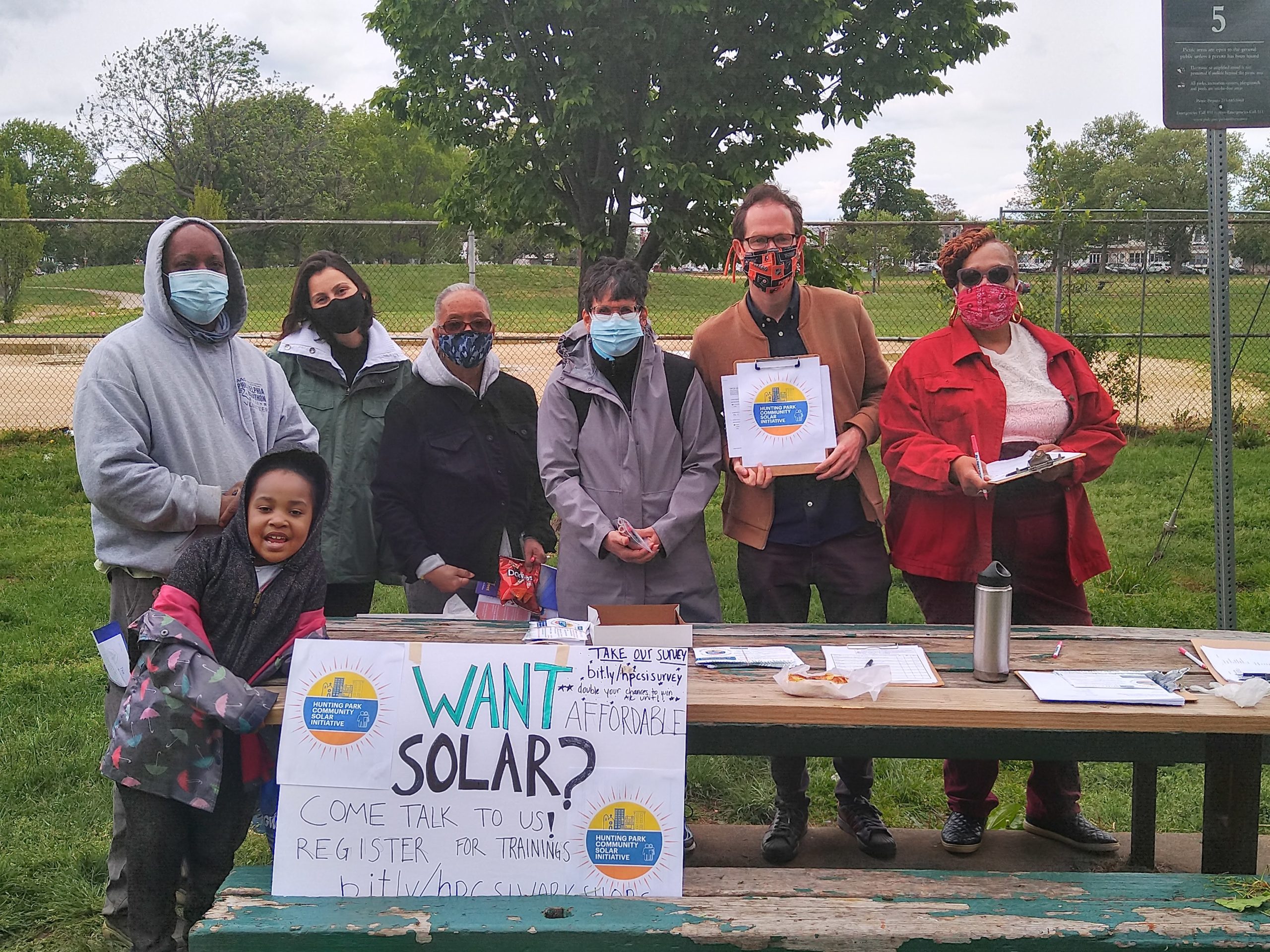Climate Huddle Conversations

How do we move the needle on climate action? According to Dr. Katherine Hayhoe’s new book Saving Us: A Climate Scientist’s Case for Hope and Healing in a Divided World, the answer starts with meaningful conversations, and requires both the love to speak out and the wisdom to understand our audience. To help believers dig deeper into what these types of conversations look like, the Climate Witness Project hosted a virtual “Climate Huddle” on January 18th, 2022.
Part of the evening’s focus was on having small group conversations centered around attitudes and thoughts about climate change. Jenna VanDonselaar, one of the CWP co-hosts for the evening reminded participants as they started that when having difficult conversations it’s important to not assume what other people believe or think. “Talking about climate change, faith and our political views can be tender,” she noted. “I want everyone to come away from this evening feeling loved and feeling heard.”
Co-host Cameron Kritikos concurred, and said he wanted attendees to come away from the event feeling encouraged and convicted and ready for follow-up action, “This is the question I want to challenge you with tonight, ‘What are we going to do?’”
In order to help attendees work through this question of practical action, there were several breakout room times during the evening for participants to practice discussing climate change together, using principles from Dr. Hayhoe’s book. Jenna pointed out that in the book, Katherine Hayhoe focuses on how talking about climate change is one of the most important things we can do. Quoting the book, Jenna read, “The biggest challenge to climate change conversation is not science denial, but it’s a combination of tribalism, complacency and fear.” So how do we get past that to have civil conversations? The questions in the breakout rooms were meant to guide these conversations and give opportunity to practice discussing climate change.
As one participant noted, “It’s good to bring people together to talk. Participating in a discussion helps bridge the chasm between thinking about creation care and becoming actively engaged. Having an opportunity like this to meet like-minded people who are welcoming and encouraging makes it easier to commit to becoming involved.” Another commented, “Seeing so many people from my denomination, from all over the U.S. and Canada, who are willing to work for Climate Justice was so encouraging”
After the breakout discussion sessions wrapped up, Dr. Katherine Hayhoe joined to share a bit more. “The whole purpose of my book is to show people how who we are, our unique life experiences, our unique values, our unique identities, makes us the perfect person to connect with others who share some parts of our identity.” She pointed out that making a difference on climate change requires taking what’s in our head and moving it to our heart “why it matters to us” and to our hands “what we can do about it to make a difference”.
Dr. Hayhoe wrapped up the evening by answering one final question from an attendee, asking what actions are most important to start taking. “My answer to your question is that we need change at every level. The most important impact that changes in our individual life have is not on net carbon emissions. It’s the impact it has on others around us. I always adopt two new habits every year. But I know that the biggest impact of these changes is not on carbon emissions. It’s just a drop in the bucket. It’s the impact it has on others. I share on social media. I talk about it with other people. That’s how we change our social norms… Whether we change our light bulbs or do lobbying, talk about it! Whether it is asking our university to put in charging stations for electric cars or putting our money in a bank that has climate friendly policies, talk about it! Remember, we’re a body! We are interdependent beings that depend on each other and on this planet that we all share.”
MORE STORIES AND NEWS LIKE THIS
Loving our Neighbor: A Net Zero Lent Challenge
Loving our Neighbor: A Net Zero Lent Challenge Most of us in the West are
Climate Huddle Conversations
Climate Huddle Conversations How do we move the needle on climate action? According to Dr. Katherine
Climate Change Advocacy at the Community Level
Climate Change Advocacy at the Community Level With the release of the latest Intergovernmental Panel


